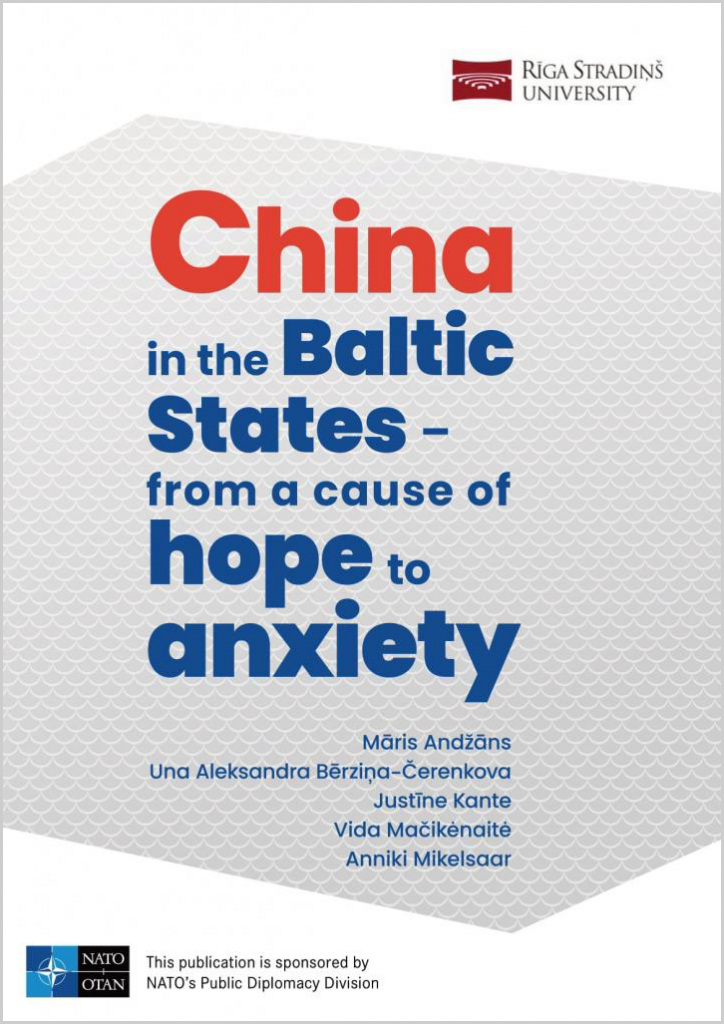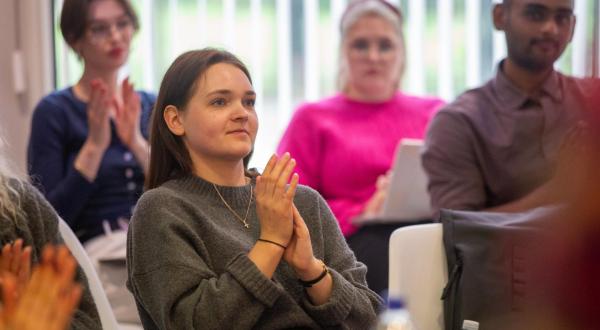Presentation of a NATO-Funded Publication on the Role of China in the Baltic States
The publication China in the Baltic States - From a Cause of Hope to Anxiety will be presented online on 20 December 2022 at 13:00. It was developed within the framework of the project "China's Role and Perception in the Baltic States: Implications for National Security and NATO" funded by NATO’s Public Diplomacy Division.

China in the Baltic States - From A Cause of Hope to Anxiety
The publication assesses the perception and the role of the People’s Republic of China (China) in Latvia, Estonia, and Lithuania, with the emphasis on the implications of China for the national security of the three states and the North Atlantic Treaty Organization (NATO). The authors review thirty years of bilateral cooperation between China and each of the Baltic States and analyse the results from nationally representative surveys on Baltic attitudes toward China.
The publication was edited by Una Aleksandra Bērziņa-Čerenkova, Associate Professor, Doctor of Political Science, Head of the Rīga Stradiņš University (RSU) China Studies Centre, and Māris Andžāns, Associate Professor, Doctor of Political Science. The authors represent all three Baltic States: Justīne Kante, PhD student at RSU (Latvia); Vida Mačikėnaitė, Assistant Professor at the International University of Japan (Lithuania); Anniki Mikelsaar, Master's student at Oxford University (Estonia).
The editors of the new edition, Bērziņa-Čerenkova and Andžāns, underline that China has undergone significant changes in recent decades and its economic, military and political authority has expanded rapidly. The superpower's influence has reached out to regions with minimal or no prior experience of engagement. The Baltic States are one of them, and their relations with China are particularly ambiguous. The last three decades of Baltic-China engagement have gone through ups and downs. Most controversies have arisen surrounding Taiwan (the Republic of China), the Dalai Lama, and Russia. The hope factors were broadly confined to unmet expectations of meaningful economic cooperation. Baltic-China relations are currently at one of their lowest points, and no improvement is foreseen.
Programme
- Introduction by Una Aleksandra Bērziņa-Čerenkova (RSU)
- Address by Toms Baumanis, RSU Vice Rector for Administration and Development
- The case of Estonia and conclusions. Anniki Mikelsaar (Oxford University)
- The case of Latvia and conclusions. Justīne Kante (RSU)
- The case of Lithuania and conclusions. Vida Mačikenaite (International University of Japan)
- Project conclusions by Māris Andžāns (RSU)
- Questions and answers
- Conclusion
The event language is English.

Related news
 18 Student teams to start developing their ideas in B-Space incubation programmeFor RSU Employees, For Students, Innovation, B-Space
18 Student teams to start developing their ideas in B-Space incubation programmeFor RSU Employees, For Students, Innovation, B-Space


